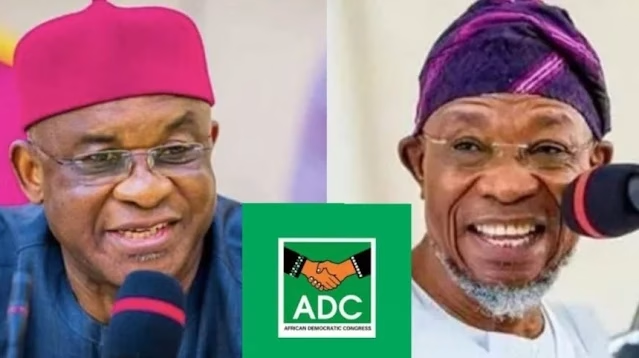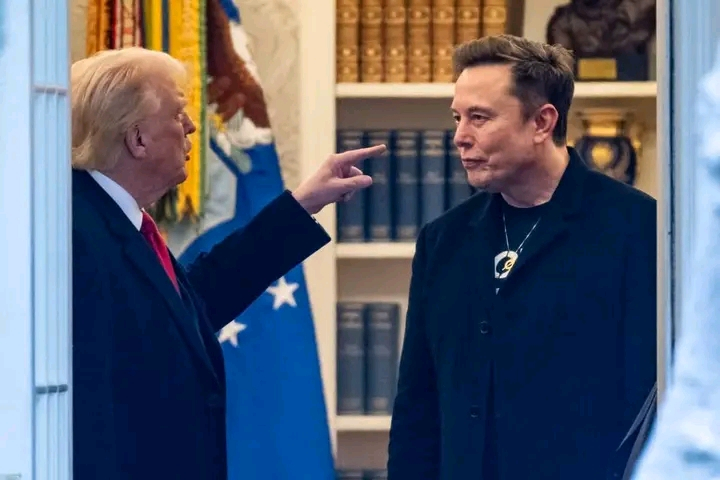A former Senate President, Senator David Mark, and ex-Osun State Governor, Rauf Aregbesola, have been appointed as the interim Chairman and Secretary, respectively, of the African Democratic Congress, the coalition platform being positioned against President Bola Tinubu ahead of the 2027 elections.
According to multiple reliable sources who were present at the just-concluded meeting on Tuesday night in Abuja but requested anonymity as they were not authorized to speak, leaders of the opposition coalition unanimously agreed on Mark and Aregbesola for the roles.
The sources further disclosed that a former Sports Minister, Bolaji Abdullahi, has been appointed as the interim National Publicity Secretary.
The sources further disclosed that the ADC and its newly constituted leadership will be formally unveiled in Abuja tomorrow.
President Tinubu’s administration has seen a mix of achievements and setbacks across several sectors.
Despite this, opposition leaders from multiple parties have consistently criticized the All Progressives Congress-led government, branding it a failure.
Interestingly, the major opposition parties including the PDP, Labour Party, New Nigeria Peoples Party, and Social Democratic Party have also been grappling with internal crises.
In a bid to present a formidable front ahead of the 2027 elections, ex-Vice President Atiku Abubakar, Labour Party’s Peter Obi, a former Rivers State Governor, Rotimi Ameachi, a former Kaduna State Governor, Nasir El-Rufai, and other political figures came together to launch a new coalition during a meeting in Abuja on March 20.
The move ignited a nationwide conversation about the potential impact of a united opposition, with mixed reactions from political analysts and the general public.
After months of speculation over which platform the coalition would adopt, The PUNCH exclusively reported on May 19 that the group had settled on the ADC as its political vehicle.
Subsequent reports by Sunday PUNCH confirmed that Senator Mark has been selected as the coalition’s interim chairman under the ADC platform, with a formal unveiling slated for Wednesday.
One of the sources said Aregbesola who earlier rejected the offer changed his mind and accepted it after he was prevailed upon by the stakeholders.
He stated, “We just concluded a meeting tonight. Mark and Aregbesola have been appointed as the ADC Interim National Chairman and National Secretary.
“This will be officially unveiled tomorrow (Wednesday), so we are on track.”
Another source added, “Atiku and other coalition leaders met tonight and resolved to adopt the ADC as their platform after months of consultations.
“For now, the ADC National Chairman, Ralph Nwosu, has stepped aside to allow Mark and Aregbesola take over as interim Chairman and Secretary.
“You know Aregbesola rejected it some time ago, but he was prevailed upon by stakeholders, so he has accepted to serve in that capacity. All of this, and more, will be made public tomorrow. Former Minister of Sport, Bolaji will serve as National Publicity Secretary.”
Confirming the development, Kola Ologbondiyan, a former aide to the ex-Senate President and former PDP National Publicity Secretary, announced in a tweet via his verified X account that the ADC has been adopted.
He stated, “African Democratic Congress (ADC) has been adopted as the political party for the coalition. The party has elected Sen. David Mark as the Interim National chairman and Ogbeni Raud Aregbesola as the interim National Secraetary.”











